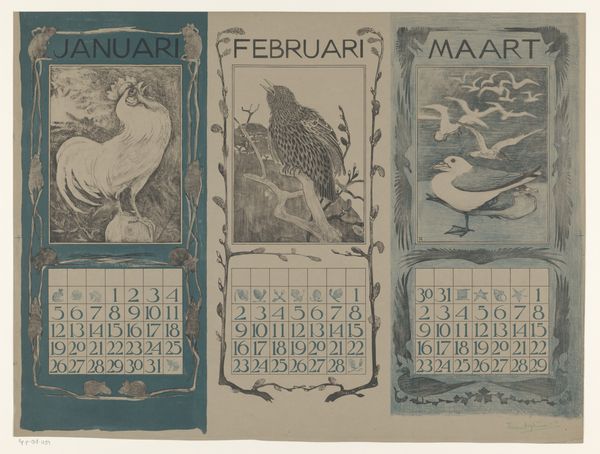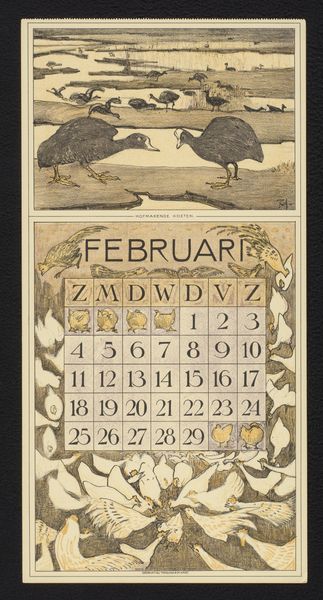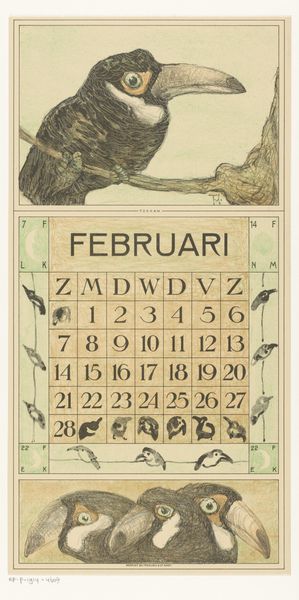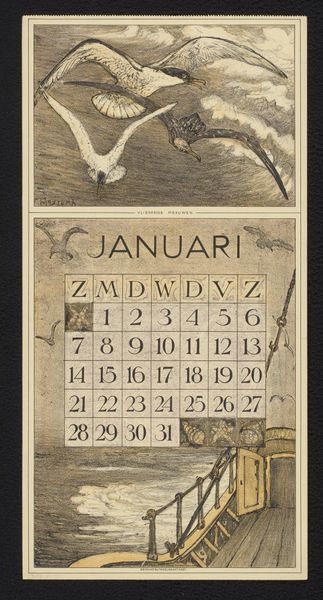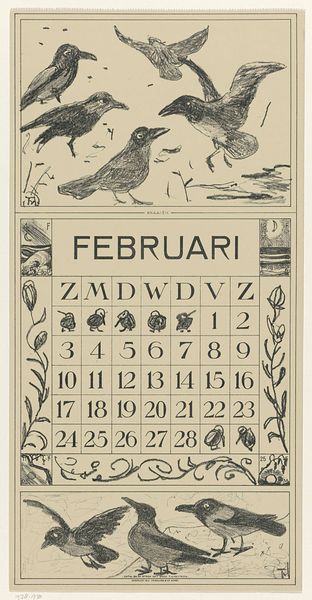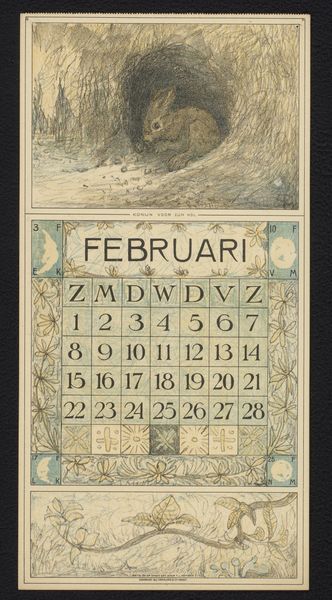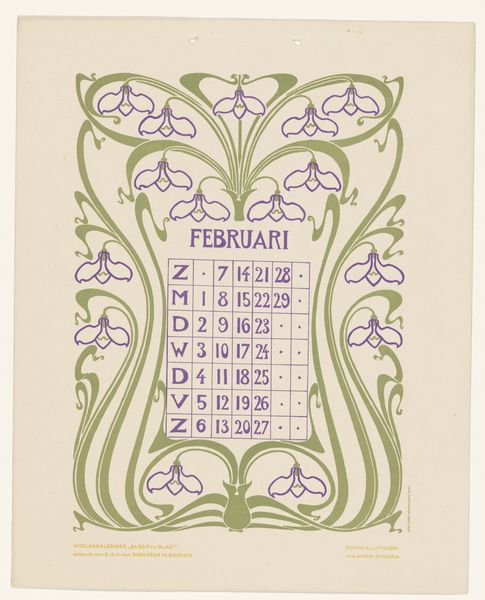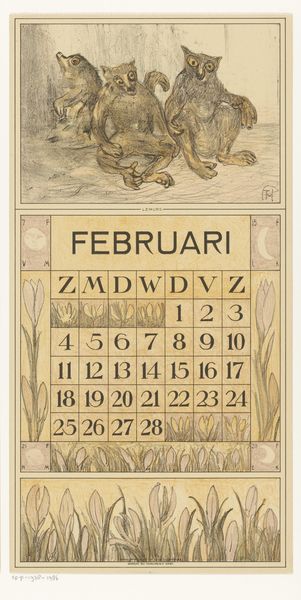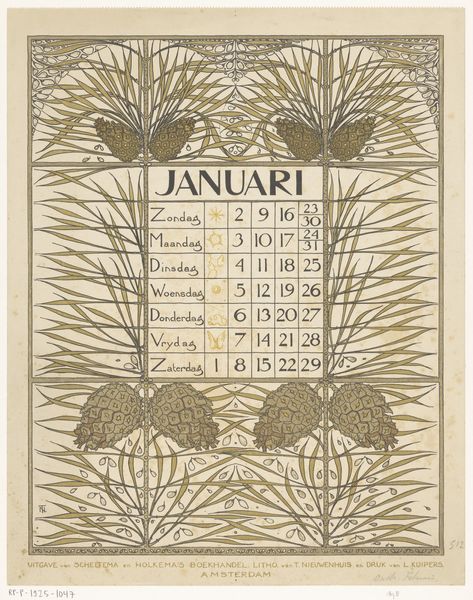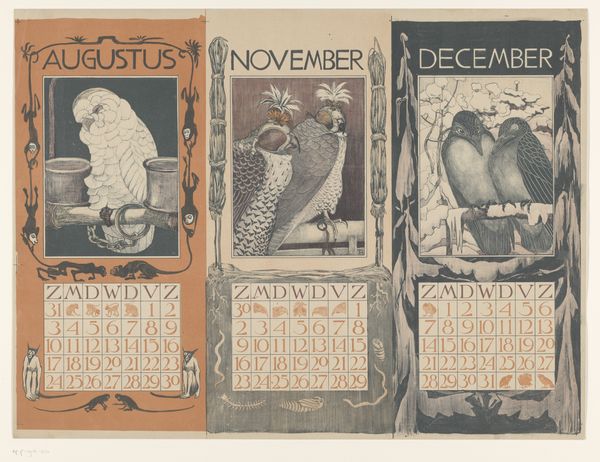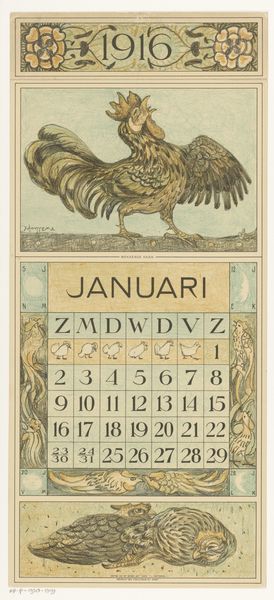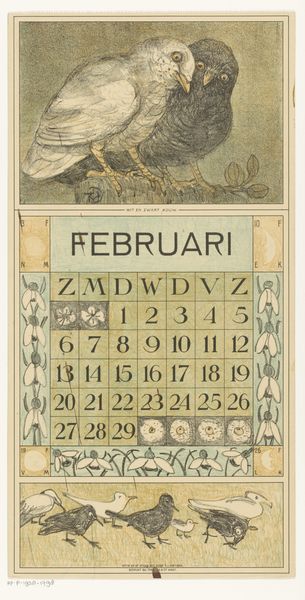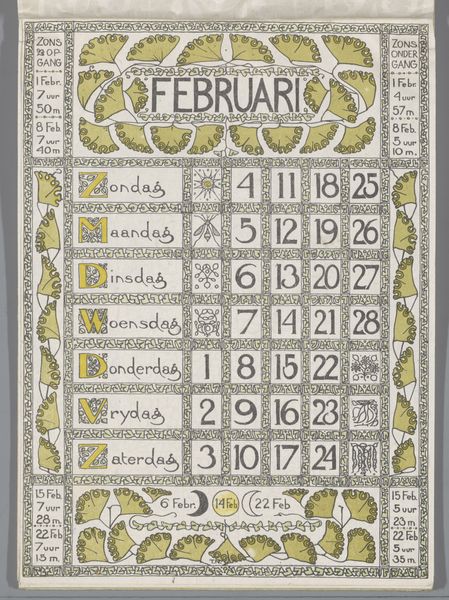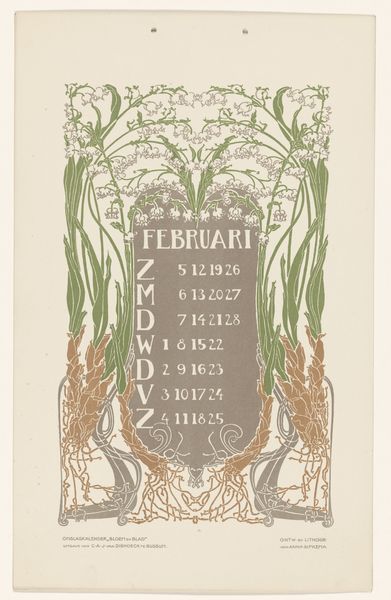
drawing, print, paper, ink
#
portrait
#
drawing
#
aged paper
#
toned paper
#
art-nouveau
# print
#
old engraving style
#
landscape
#
bird
#
figuration
#
paper
#
personal sketchbook
#
ink
#
ink drawing experimentation
#
pen work
#
sketchbook drawing
#
watercolour illustration
#
storyboard and sketchbook work
#
sketchbook art
Dimensions: height 499 mm, width 653 mm
Copyright: Rijks Museum: Open Domain
Curator: Look at the Hoytema print displayed before us, "Kalenderbladen van januari, februari en maart, met vogels," dating back to 1901. Editor: It has such a somber yet striking tone. The aged paper and limited color palette give it this ethereal, almost ghostly quality. Each panel presents a different bird and month, I note. Curator: Exactly. We see the months presented almost as frames, filled in with seasonal wildlife appropriate to their placement within the quarter. Each panel, rendered predominantly in grayscale with only the faintest suggestions of added colors, shares compositional similarities but contains enough subtle variation as to grant individual appeal. Observe the Art Nouveau framework which adds thematic ornamentation. Editor: Yes, the birds are presented like symbolic guardians for their respective months. A rooster crowing for January, embodying new beginnings, a melancholic bird singing on a branch for February that reminds us of love, a seagull over it's eggs, promising new life in March... Curator: Certainly the thematic connection is unmistakable. Note how each section incorporates symbols appropriate to the month. Observe how he uses contrasting shades within these areas – not to necessarily denote shadow, but rather texture and differentiation. It's quite effective how Hoytema evokes atmosphere with line and shape alone. Editor: You are so right, it reminds me how each year we connect our personal experiences to these changing times and creatures as living totems. We are more alike to animals than unlike. He understood it was the turn of a cycle with life reasserting itself and with that comes meaning. Curator: Precisely, and the strength of the graphic lines in stark blacks and whites serve to enforce those conceptual components through presentation alone. This is a study in contrast; between detail and void. Editor: The enduring appeal of such pieces rests in their elegant construction. I’ve found this piece fascinating to revisit. Curator: I, likewise. Each element speaks to a world of symbolism, crafted meticulously by Hoytema.
Comments
No comments
Be the first to comment and join the conversation on the ultimate creative platform.
